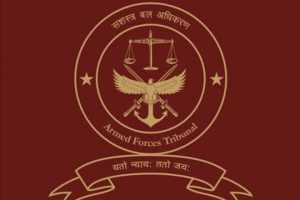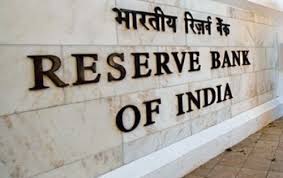Daily Current Affairs for Government Exams:
Today Current Affairs: 27th August 2020 for UPSC IAS exams, State PSC exams, SSC CGL, State SSC, RRB, Railways, Banking Exam & IBPS, etc
Table of Contents
Contents:
- Export Preparedness Index 2020:
- McKinsey Global Institute (MGI) has released a report titled ‘India’s turning point: An economic agenda to spur growth and jobs’.:
- Armed Forces Tribunal :
- Eat Out to Help Out’ scheme:
- Contingency Fund (CF) of the central bank:
- Other important current affairs
1.Export Preparedness Index 2020:

Recently, the NITI Aayog in partnership with the Institute of Competitiveness released the Export Preparedness Index (EPI) report 2020.EPI 2020:
- Aim: To identify challenges and opportunities, enhance the effectiveness of government policies and encourage a facilitative regulatory framework for export.
- Ranking Parameter: The index ranked states on four key pillars:
- Policy: A comprehensive trade policy providing a strategic direction for exports and imports.
- Business Ecosystem: An efficient business ecosystem helping states attract investments and create an enabling infrastructure for individuals to initiate start-ups.
- Export Ecosystem: Assess the business environment, which is specific to exports.
- Export Performance: This is the only output-based parameter and examines the reach of export footprints of States and Union Territories.
- Sub-pillars: The index also took into consideration 11 sub-pillars – export promotion policy; institutional framework; business environment; infrastructure; transport connectivity; access to finance; export infrastructure; trade support; R&D infrastructure; export diversification; and growth orientation.
- Features: The EPI is a data-driven effort to identify the core areas crucial for export promotion at the sub-national level (states and union territories).
- Benefit: The Index would be a helpful guide for the state governments to benchmark regional performance with respect to export promotion and thus deliver key policy insights on how to improve and enhance the exports.
Performance:
- Gujarat has topped the overall EPI 2020 followed by Maharashtra and Tamil Nadu.
- Among the landlocked states, Rajasthan has topped the index, followed by Telangana and Haryana.
- Among the Himalayan states, Uttarakhand topped the index, followed by Tripura and Himachal Pradesh.
Across Union Territories, Delhi has performed the best.
India’s Exports:
- India’s merchandise exports have witnessed growth from USD 275.9 billion in 2016-17 to USD 331.0 billion in 2019-20.
- However, the Covid-19 crisis gave a major blow to the current fiscal. Consequently, India’s exports shrank by 60% in April 2020.
- This consistent positive growth has been a result of key measures adopted by the government post-2016 for the promotion of merchandise exports.
- A mid-term review of the Foreign Trade Policy 2015-20 was conducted in 2017 to assess the policy interventions required to boost the export levels.
- A new Logistics Division was established in the Department of Commerce to organize the integrated development of the logistics sector.
- Trade Infrastructure for Export Scheme (TIES) was launched in 2017 to address the existing export infrastructure gaps.
- Agriculture Export Policy was rolled out to target export contribution at a micro-level.
- Transport and Marketing Assistance (TMA) scheme was also introduced for the export of specified agriculture products to mitigate the disadvantage of the higher cost of transportation.
2.McKinsey Global Institute (MGI) has released a report titled ‘India’s turning point: An economic agenda to spur growth and jobs’.:

The report identifies a reform agenda that could be implemented in the next 12 to 18 months to increase productivity and create jobs.
Data Analysis:
- Given the increasing urbanisation and population trends, there will be 90 million additional workers in search of non-farm jobs by 2030.
- To cater to that, India will have to triple job creation to 12 million gainful non-farm jobs per year from the 4 million achieved between 2013 to 2018.
- The Gross Domestic Product (GDP), which is set to contract by over 5% in 2020-21, needs to go up to 8-8.5% per annum for the next decade to create the opportunities in the post Covid-19 era.
- Manufacturing and the construction sectors offer the most opportunities for economic growth and also for higher employment.
- The country risks a decade of stagnating incomes and quality of life if urgent steps are not taken to spur growth.
Measures Suggested:
- Global trends such as digitization and automation, shifting supply chains, urbanization, rising incomes, and demographic shifts, and a greater focus on sustainability, health, and safety can become the hallmarks of the post-pandemic economy.
- Higher Productivity through Privatisation: Privatisation of 30 or so of the largest state-owned enterprises to potentially double their productivity.
- The government also had a focus on privatization under the Aatmanirbhar Bharat Package.
- Framing sector-specific pro-growth policies to attract investment in manufacturing, real estate, agriculture, healthcare, and retail.
- Labour Reforms: Creation of flexible labour markets for the industry with better benefits and safety nets for workers.
- Improvement in Infrastructure: India needs to unlock supply inland markets to reduce land costs by 20-25%, enable efficient power distribution to reduce commercial and industrial tariffs by 20-25%; and improve the ease and reduce the cost of doing business.
- India needs to triple its number of large firms having revenues of over USD 500 million.
- Streamlining fiscal resources can deliver USD 2.4 trillion in investment while boosting entrepreneurship by lowering the cost of capital for enterprises by about 3.5 percentage points.
- Measures are required to channel more household savings to capital markets, to reduce the cost of credit intermediation, and to streamline government finance.
- Creation of a ‘bad bank’ can take care of the inoperative assets.
- A bulk 60% of the reforms will have to be undertaken by states and the remaining 40% by the Centre.
3.Armed Forces Tribunal :

The Delhi-based principal bench of the Armed Forces Tribunal has initiated hearing of matters pertaining to regional benches through video conferencing.
About AFT:
- It is a military tribunal in India.
- It was established in 2009 under the Armed Forces Tribunal Act, 2007.
- The act was passed on the basis of the recommendation of the 169th Law Commission Report and various Supreme Court directives.
- Powers and functions:
- To adjudicate disputes and complaints with respect to commission, appointments, enrolments and conditions of service in respect of persons subject to the Army Act, 1950, The Navy Act, 1957 and the Air Force Act, 1950.
- Composition:
- Each Bench comprises of a Judicial Member and an Administrative Member.
- Judicial Members are retired High Court Judges.
- Administrative Members are retired Members of the Armed Forces who have held the rank of Major General/ equivalent or above for a period of three years or more or Judge Advocate General (JAG), who has held the appointment for at least one year.
- The person holding the office of the chairperson of AFT must have been either a retired judge of Supreme Court or a retired chief justice of the high court.
4.‘Eat Out to Help Out’ scheme:

The EOHO Scheme is an economic recovery measure by the UK government to support hospitality businesses as they reopen after the COVID-19 lockdown in the country.
- The scheme was announced on July 8 as part of the Plans for Jobs’ summer economic update.
- Under the EOHO Scheme, the government would subsidize meals (food and non-alcoholic drinks only) at restaurants by 50 per cent, from Monday to Wednesday every week, all through August.
- The discount is capped at GBP 10 per head and does not apply to take-away or event catering.
- There is no minimum spend and no limit on the number of times customers can avail the offer, since the whole point of the scheme is to encourage a return to dining in restaurants.
- EOHO scheme would cost GBP 500 million.
- All over the world, the food services sector is one of the worst affected by the pandemic.
- In the UK, the top two concerns were customers avoiding restaurants for fear of contracting the virus and customers having less disposable income for dining out.
- The scheme makes eating out more affordable for consumers directly and helps restore demand.
- And Restoring consumer demand is being seen as crucial to the UK’s economic recovery.
- The scheme may have been introduced too early, since it was not yet clear whether the problem was on the demand side, with people being reluctant to go out and eat, or on the supply side, with restaurants unable to serve enough people, thanks to social distancing.
- The scheme benefits everyone, regardless of income.
- Higher-income households would have returned to restaurants anyway.
5.Contingency Fund (CF) of the central bank::

The Reserve Bank of India (RBI) has retained a whopping amount of Rs 73,615 crore within the RBI by transferring it to the Contingency Fund (CF) of the central bank.
- As a result, the CF has swelled to a new high of Rs 264,034 crore.
- As per Section 47 of the RBI Act, profits or surplus of the RBI are to be transferred to the government, after making various contingency provisions, public policy mandate of the RBI, including financial stability considerations.
- The RBI’s transfer this year is as per the economic capital framework (ECF) adopted by the RBI board last year.
Contingency Fund (CF):
- This is a specific provision meant for meeting unexpected and unforeseen contingencies.
- This includes depreciation in the value of securities, risks arising out of monetary/exchange rate policy operations, systemic risks, and any risk arising on account of the special responsibilities enjoined upon the Reserve Bank.
- This amount is retained within the RBI.
- The central bank’s main risk provision accounts are Contingency Fund, Currency and Gold Revaluation Account (CGRA), Investment Revaluation Account Foreign Securities (IRA-FS) and Investment Revaluation Account-Rupee Securities (IRA-RS). Together now they amount to Rs 13.88 lakh crore.
CGRA account:
- The Currency and Gold Revaluation Account (CGRA) is maintained by the Reserve Bank to take care of currency risk, interest rate risk, and movement in gold prices.
- Unrealized gains or losses on the valuation of foreign currency assets (FCA) and gold are not taken to the income account but instead accounted for in the CGRA.
- CGRA provides a buffer against exchange rate/ gold price fluctuations. It can come under pressure if there is an appreciation of the rupee vis-à-vis major currencies or a fall in the price of gold.
IRA-FS and IRA-RS accounts:
- The unrealized gains or losses on revaluation in foreign dated securities are recorded in the Investment Revaluation Account Foreign Securities (IRA-FS).
- Similarly, the unrealized gains or losses on revaluation is accounted for in Investment Revaluation Account-Rupee Securities (IRA-RS).
Other important current affairs:
1. Pulikkali, a colorful part of Onam celebrations in Thrissur, will be an online-only affair this year due to COVID-19.
- Pulikkali is a recreational folk art from the state of Kerala. The folk art is mainly practiced in the Thrissur district of Kerala.
- It is performed by trained artists to entertain people on the occasion of Onam, an annual harvest festival, celebrated mainly in Kerala.
- On the fourth day of Onam celebrations (Nalaam Onam), performers painted like tigers and hunters in bright yellow, red, and black dance to the beats of instruments like Udukku and Thakil.
- The literal meaning of Pulikkali is the ‘play of the tigers’ hence the performance revolves around the theme of tiger hunting.
- Pulikkali was introduced in Thrissur by Shakthan Tampuran two centuries ago.
2. With a focus on indigenous development of futuristic technologies, a five-member expert committee has been constituted to review the charter of duties for all laboratories of the Defence Research and Development Organisation (DRDO).
- The committee was constituted by G. Satheesh Reddy, Secretary, Department of Defence Research and Development (DDR&D), who is also the Chairman, DRDO.
- The five-member committee is headed by Professor V. Ramagopal Rao, Director, Indian Institute of Technology, Delhi.
- The terms of reference are: To study and review the charter of duties of all the labs of the DRDO, to redefine the charter of duties of the labs on the current and futuristic defence and battlefield scenario, and to minimise the overlap of technologies amongst the labs.
- The committee has to submit its report within 45 days.
3. The Department of Pension & Pensioners’ Welfare (DoPPW) has decided to integrate the electronic Pension Payment Order (e-PPO) generated through PFMS application of CGA (Controller General of Accounts), with Digi Locker, in order to enhance Ease of Living of Central Government Civil Pensioners.
- This system will enable any Pensioner to obtain an instant print-out of the latest copy of their PPO, from their Digi Locker account.
- This initiative will create a permanent record of their respective PPO in their Digi Locker and at the same time eliminate delays in reaching the PPO to new Pensioners, as well as the necessity of handing over a physical copy.
- This facility has been created with ‘Bhavishya’ software, which is a single window platform for Pensioners, right from the start of their Pension processing, till the end of the process.
- “Bhavishya” shall now provide an option to retiring employee, to link their Digi-locker account with their “Bhavishya” account and obtain their e-PPO in a seamless manner.
4.Hurricane Laura has made landfall in southwestern Louisiana in US as one of the most powerful storms to hit the state.
- Hurricanes are large, swirling storms.
- They produce winds of 119 kilometers per hour (74 mph) or higher.
- They form over warm ocean waters.
5.Attorney General of India KK Venugopal has told the Centre that it must compensate states fully for the loss of Goods and Services Tax revenue during the coronavirus-induced lockdown.
- The Centre had sought advice from the attorney general on the matter.
- The Attorney General for India is the central government’s chief legal advisor, and its primary lawyer in the Supreme Court of India.
- He is a part of the Union Executive.
- He is appointed by the President of India under Article 76(1) of the Constitution and holds office during the pleasure of the President.
- He must be a person qualified to be appointed as a Judge of the Supreme Court.
- He should be an Indian Citizen.
- He must have either completed 5 years in High Court of any Indian state as a judge or 10 years in High Court as an advocate.
- He may be an eminent jurist too, in the eye of the President.
6.Haryana Police has identified a phishing racket that accessed over 300 nationalized and private bank accounts across many states.
- Frauds were done with Phishing and the use of e-SIMs as the main conduit.
- Phishing: It is a cybercrime in which a target or targets are contacted by email, telephone, or text message.
- This is done by someone posing as a legitimate institution to lure individuals into providing sensitive data such as personally identifiable information, banking and credit card details, and passwords.
- e-SIM: It is the Subscriber Identification Module (SIM) embedded in the phone.
- It can not be removed as opposed to physical SIM cards, which can be removed.
- The e-SIMs enable users to change service providers through a simple process.
- Multiple networks and numbers can be stored on a single e-SIM too, so one can have more than one number.
7..The National Health Authority (NHA) has released the Draft Health Data Management Policy of the National Digital Health Mission (NDHM) in the public domain.:
- The draft of the policy has been released on the official website of the National Digital Health Mission (NDHM) and will be available for public comments and feedback till the 3rd of next month.
- The Draft Policy is the maiden step in realizing NDHM’s guiding principle of “Security and Privacy by Design” for the protection of individuals’ data privacy.
- Data collected across the National Digital Health Ecosystem (NDHE) will be stored in at the central level, the state or Union Territory level and at the health facility level, by adopting the principle of minimality at each point, according to the document.
- It encompasses various aspects pertaining to health data like data privacy, consent management, data sharing, and protection.
8. World Health Organization (WHO) has declared Africa free of polio, a landmark in a decades-long campaign to eradicate the notorious disease around the world
- A WHO commission has certified that no cases had occurred on the continent for the past four years, the threshold for the eradication of poliovirus.
- Poliovirus now joins smallpox in the list of viruses that have been wiped out in Africa.
9. The Ministry of Culture has announced 7 new circles of Archaeological Survey of India.
- New circles have been created in Madhya Pradesh, Tamil Nadu, Uttar Pradesh, Karnataka, West Bengal, and Gujarat. Trichy, Raiganj, Rajkot, Jabalpur, Jhansi & Meerut have been announced as new circles.
- In Archaeology, the Hampi city in Karnataka is a place of international repute hence Hampi Mini Circle has been converted into a full-fledged circle.
- Earlier there were 29 ASI circles across the country.




